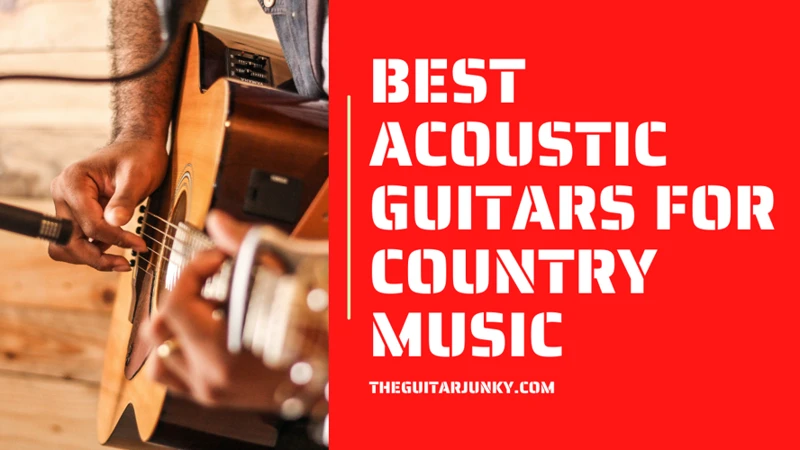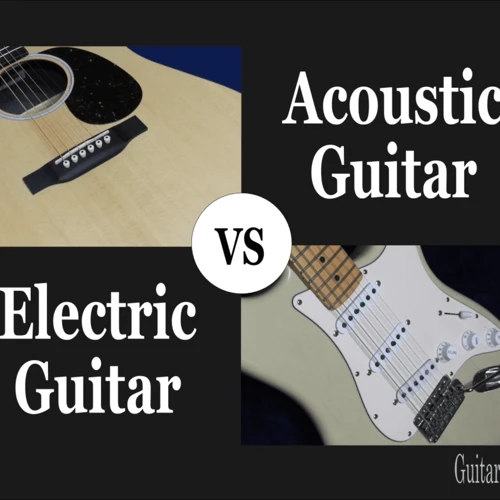When it comes to country music, the guitar is an essential instrument that sets the tone for the entire genre. Whether you’re strumming along to a classic ballad or picking out a lively tune, the type of guitar you choose can greatly impact the sound you produce. In the world of country music, two main types of guitars reign supreme: acoustic and electric. Each has its own unique characteristics and advantages, making them suitable for different styles and preferences. In this article, we will delve into the pros and cons of acoustic and electric guitars in the context of country music, helping you make an informed decision on which type suits your playing style and musical goals.
Acoustic Guitars
Acoustic guitars are the traditional choice for many country music enthusiasts. Their classic sound and versatility make them a popular option for both beginners and seasoned players. Here are some of the pros and cons of acoustic guitars in the realm of country music:
Pros
1. **Natural Sound**: One of the biggest advantages of acoustic guitars is their natural, warm sound. In country music, this organic tone is often preferred for its authentic and rustic feel, adding depth and richness to the music.
2. **Portability**: Acoustic guitars are generally lighter and more portable than their electric counterparts. This makes them ideal for musicians who enjoy playing on the go or performing in intimate settings like small venues or campfires.
3. **Versatility**: Acoustic guitars can be played in various styles, from fingerpicking to strumming, making them versatile instruments for country music. They can easily adapt to different genres within the country music spectrum, from traditional to contemporary.
4. **Acoustic-Electric Options**: Many acoustic guitars come with built-in pickups and preamps, allowing them to be amplified for larger venues or recording purposes. This versatility makes acoustic-electric guitars a popular choice for country musicians who need a mix of acoustic warmth and amplified power.
Cons
1. **Volume Limitations**: Acoustic guitars have a limited volume compared to electric guitars. This can be a drawback in situations where you need to compete with other instruments or amplify your sound significantly.
2. **Playability**: The thicker neck and higher action of some acoustic guitars can make them slightly less comfortable to play, especially for beginners or those with smaller hands. This can affect the ease of playing complex chords or fast-paced solos.
3. **Feedback**: Acoustic guitars are prone to feedback when amplified at high volumes, which can be a challenge during live performances or recording sessions. Controlling feedback requires skill and proper equipment to avoid unwanted noise.
Electric Guitars
Electric guitars have long been associated with rock and roll, but they also have a prominent place in country music, especially in modern and crossover genres. Here are the pros and cons of electric guitars in the context of country music:
Pros
1. **Versatility**: Electric guitars offer a wide range of tones and effects that can be tailored to suit different styles of country music. From twangy telecaster sounds to smooth jazz-infused licks, electric guitars provide endless possibilities for creative expression.
2. **Sustain and Dynamics**: The inherent sustain of electric guitars allows for longer notes and a more fluid playing style, which can enhance the emotional impact of country ballads or solos. The dynamic range of electric guitars also makes them suitable for expressive playing techniques.
3. **Ease of Play**: Electric guitars typically have thinner necks and lower action, making them easier to play for beginners or those with smaller hands. This can facilitate faster chord changes and intricate fingerpicking patterns commonly found in country music.
4. **Amplification**: Electric guitars can be easily amplified to achieve higher volumes and a more powerful sound. This is advantageous in live performances, where projection and clarity are crucial for engaging the audience.
Cons
1. **Dependence on Equipment**: Electric guitars rely on amplifiers and effects pedals to achieve their full potential. This can add complexity and cost to your setup, requiring additional gear and technical knowledge to get the desired sound.
2. **Maintenance**: Electric guitars with intricate electronic systems may require more maintenance and care compared to acoustic guitars. Issues with pickups, wiring, or hardware can affect the performance of the instrument and necessitate regular upkeep.
3. **Limited Acoustic Sound**: While electric guitars excel in producing a wide range of tones, they may lack the natural warmth and resonance of acoustic guitars. This can be a drawback for country music styles that emphasize acoustic authenticity and simplicity.
Looking to explore different types of guitars for country music? Check out our articles on acoustic-electric vs hollow body electric guitars, semi vs solid electric country guitars, pros and cons of koa acoustic guitars, vintage vs modern semi-hollow electric guitars for country music, and hybrid vs fingerstyle acoustic guitars for valuable insights into choosing the right instrument for your musical journey!
Conclusion
In the world of country music, both acoustic and electric guitars have their unique advantages and limitations. The choice between the two ultimately boils down to personal preference, playing style, and musical goals. Acoustic guitars offer a timeless sound and portability ideal for intimate performances, while electric guitars provide versatility and amplification capabilities suited for larger venues and modern country sounds.
Whether you opt for the twang of a classic acoustic guitar or the versatility of an electric model, both instruments have a place in the rich tapestry of country music. Experimenting with different guitars and styles can help you discover your unique voice as a country musician, blending tradition with innovation to create memorable songs that resonate with audiences old and new. Whichever path you choose, remember that the magic of music lies not in the instrument itself, but in the hands and hearts of those who play it.



